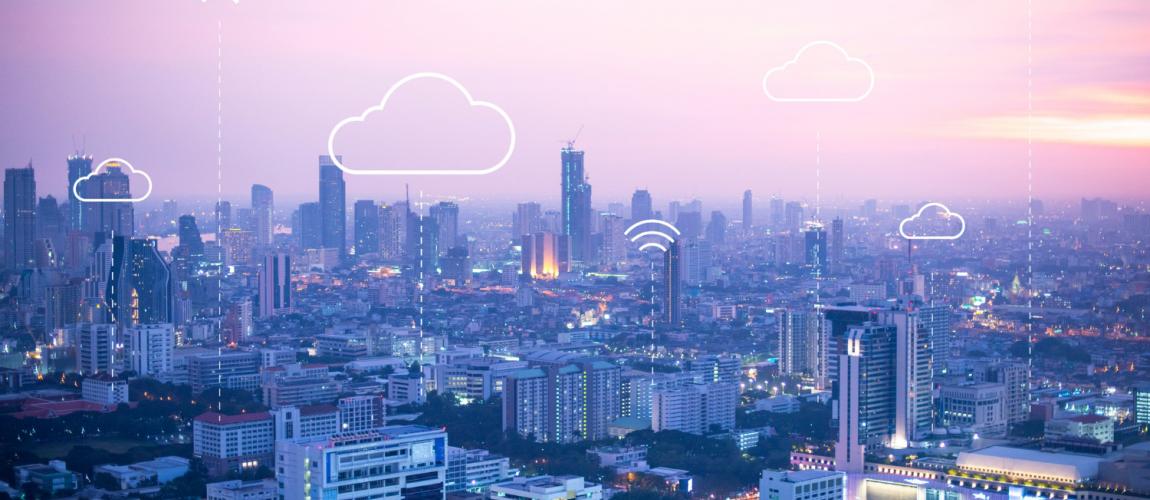Free Public Wi-Fi and Interactive Kiosks Project, Kansas City, United States

Photo Credit: Image by Freepik
On this page: A case study on Free Public Wi-Fi and Interactive Kiosks Project, Kansas City, United States. Find more at the Municipal Public-Private Partnership Framework - Project Summaries section for brief summaries of around 100 projects from around the world, examples of successes and challenges, as well as innovative ideas on solutions, or visit the Guidelines to Implementing Asset Recycling Transactions Section Overview and Content Outline, or download Full Version of the Report.
Project Summary: Background Cisco and Sprint, two major IT companies in the United States, proposed an unsolicited project to the Kansas City Government to install free public Wi-Fi and interactive kiosks. These facilities would provide internet access to residents and visitors through their mobile devices. The project further promised to streamline the city’s operations, stimulate economic development, and improve the quality of life of the city’s residents. The free public Wi-Fi and interactive kiosk project would utilize the existing Sprint Wi-Fi network, which was already serving as the backbone of Kansas City’s Smart City framework. The Kansas City Government accepted the proposal. Project Structure After carefully negotiating the security and contract terms, an agreement between the Kansas City Government and Sprint+Cisco was executed in June 2015. Under this agreement, the private companies would install devices that provide free public Wi-Fi along the 2.2-mile Kansas City streetcar line. They would further install a series of 25 interactive digital kiosks for smart lighting and video surveillance along the streetcar line, which would utilize Sensity’s NetSense platform. This is an intelligent Internet of Things (IoT) platform that can transform each lighting fixture into a sensory node, thereby saving money and energy, while the video sensors can collect real-time data for the smart city, ensuring public safety along Kansas City’s downtown streetcar line. The capital cost of the project totaled USD 16 million, of which the local government agreed to contribute about USD 3.7 million. The local government earns revenue from collecting advertising fees from the kiosks, which it shares equally with its advertising manager, Smart City Media. Once the local government has recouped its capital costs, which is estimated to take around four to five years, the revenue sharing proportions will be adjusted to 25 percent for the City and 75 percent for Smart City Media. Cisco and Sprint supplied the remaining USD 12.3 million in capital investment cost. While the private investors do not receive any direct financial returns from the project, they receive exclusive rights to access and use the data collected by the kiosks. The data collected on Wi-Fi use can be used to understand the viability of expanding Wi-Fi coverage to other areas of the City. Lessons Learned In early 2016, the 25 kiosks were installed. They can be used by the citizens to access the Internet through their connected mobile devices freely, as well as to find information about city services, current events, transportation, local business information, local history, and entertainment. The kiosks can also be used as an emergency alert system, which in turn enhances public safety.1 The case demonstrates that an unsolicited project proposal can be successful, provided it is accompanied by due diligence on the part of the municipality, especially on the contract terms. Footnote 1: Source(s): https:// www2.deloitte.com/ content/dam/Deloitte/ global/Documents/ Public-Sector/gxps- public-privatepartnerships- smartcities- funding-finance. pdf accessed 11 February 2019. https://newsroom.sprint. com/sprint-launchesfree- wi-fi-service-aspart- of-kansas-cityssmart- city-initiative.htm accessed 12 February 2019.
This is a new section of the PPPLRC website and is currently in draft form. Your feedback is welcome: If you would like to comment on the content of this section of the website or if you have suggestions for links or materials that could be included please contact us at ppp@worldbank.org.
To find more, visit the The Municipal Public-Private Partnership Framework - Project Summaries section, the Guidelines to Implementing Asset Recycling Transactions Section Overview and Content Outline, or download Full Version of the Report.
Updated: March 9, 2024